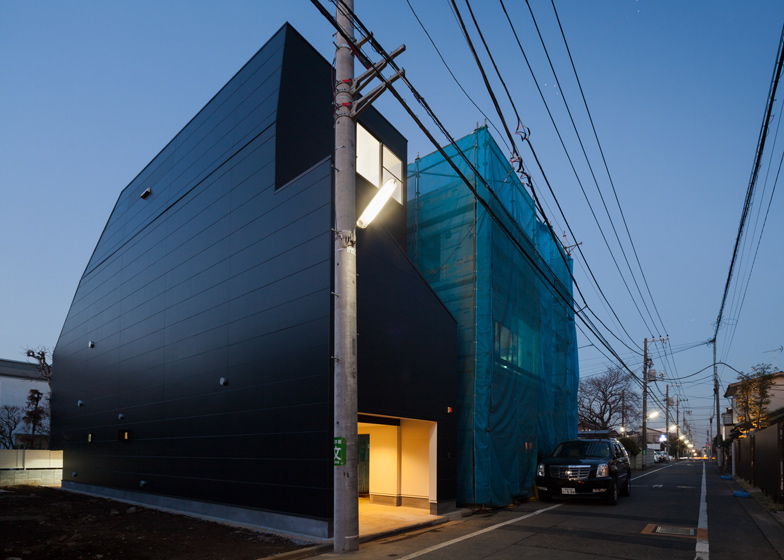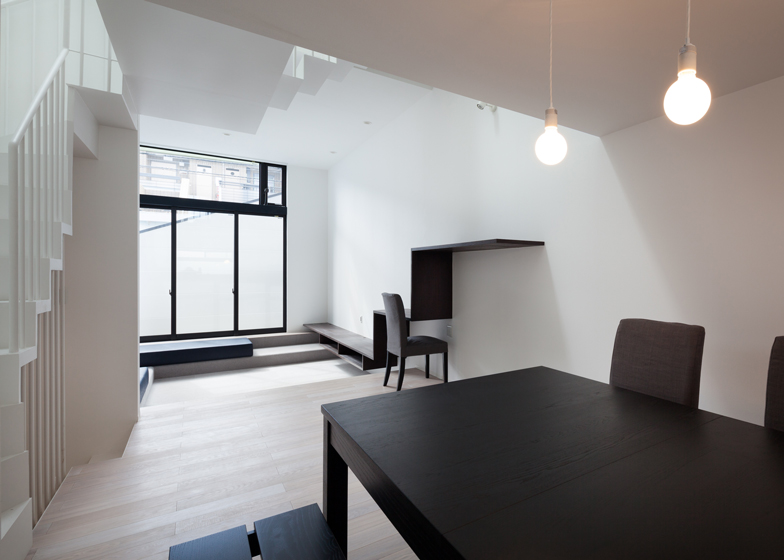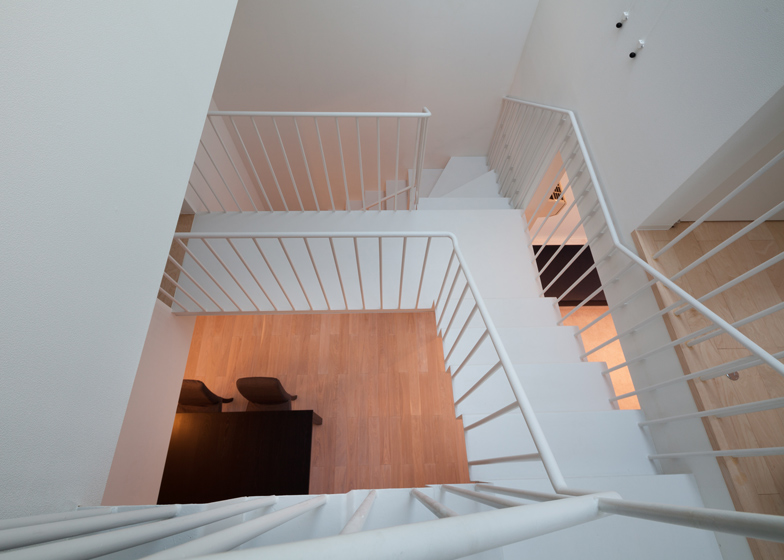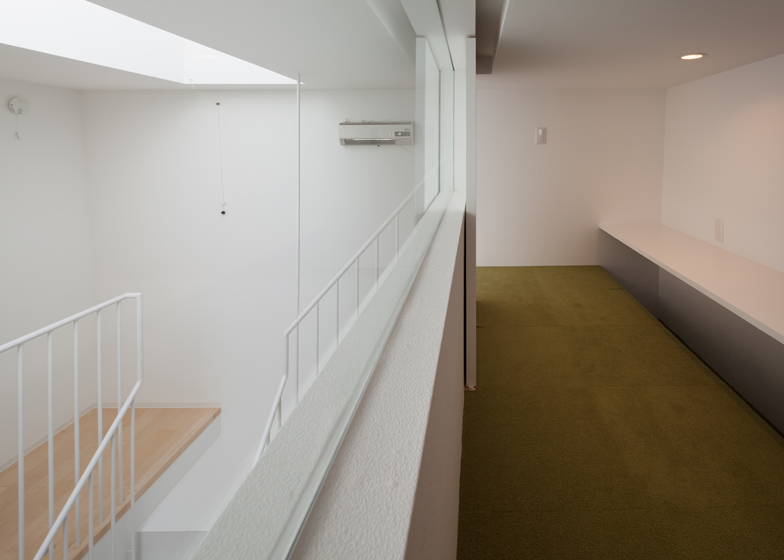Japanese studio Level Architects squeezed this all-black house onto a narrow plot in Tokyo's Fukasawa district, adding sloping offset walls around the lower floors to protect residents' privacy (+ slideshow).
Confronted with a long, narrow site measuring 4.6 by 17.3 metres, Level Architects' main concern was to create a sense of spaciousness and introduce natural light to the four-storey interior of House in Fukasawa. But this had to be done without allowing other people to see inside.
"Rather than allowing the constraining width of the plot to be felt, the goal was to create the illusion of an open connection with the surrounding area while still instilling the sense of privacy desired by most home owners within Tokyo," said the architect.
Privacy is achieved through the windowless surfaces of the two long facades. Walls also extend from the lower storeys on the building's shorter sides to restrict views of the interior from the surrounding streets.
The sloping roofline at the rear of the property was dictated by local building regulations, while an inclined wall above the garage allows eastern light to enter the open-plan first floor and blocks direct light from the setting sun.
A skylight at the centre of the house creates a bright area over a white-painted iron staircase that extends between all four storeys. Featuring suspended treads and minimal balustrades, it allows daylight to permeate the lower floors.
The house's living spaces are all located on the first floor. A double-height living room with full-height windows and a terrace deliberately contrasts with the low-ceilings of the space containing the kitchen and dining area.
Bench seating surrounds two sides of the living room, while a stepped unit mounted on the other wall creates a desk and shelving which continues onto the raised level that leads to the kitchen.
The ceiling heights of the two bedrooms above differ due to the changes in the height of the spaces below. One also opens out to a secluded balcony.
A narrow loft creates a quiet study at the very top of the house, while the ground floor accommodates bathrooms, a garage and traditional Japanese room lined with tatami mats.
Here's some project text from the architects:
House in Fukasawa, Tokyo, Japan
Located in a quiet neighbourhood where the average house is 2 stories high, the site has a narrow dimension of 4.6 meters wide and 17.3 meters long; very typical of a Tokyo city centre lot. Though the site is narrow, the length of the site created a focal point in the design. Rather than allowing the constraining width of the plot to be felt, the goal was to create the illusion of an open connection with the surrounding area while still instilling the sense of privacy desired by most home owners within Tokyo.
In order to create that sense of privacy, a wall design was incorporated on the North and South sides of the home. The southern wall is cut away in a manner which allows the eastern light to fill the interior of the house, but at the same time shield the inhabitants from the harsh rays of the setting sun. The northern wall is utilised as a reflecting board by capturing the southern light and brightening the interior, all the way down to the first floor where light is hardest to reach.
The second floor level, which is completely open and connected, utilises a very high ceiling for the living room and a low ceiling for the kitchen to differentiate space. The living room is also designed with a set of steps running around three sides of the room to create a built-in sofa and activity space where cushions can be placed, amplifying the sense of openness. The centre of the house hosts an iron staircase and top light which allows for light to filter down through the house, generating unique atmospheres which separate the individual spaces.
The third floor is broken up by different room heights as a result of the design of the second level but which is all connected around the staircase. The Master Bedroom incorporates a slanted ceiling, a result of the setback code common around the city of Tokyo, but which adds a unique element to the room. The loft space opens up to the stairwell, exposing the room to the indirect light coming down from the ceiling window.
The design adjustments made in the section planning of the house emphasised the idea of a long house, one which generates a creative use of line-of-sight and height differentiations to create the sense of a house larger than its narrow width.





